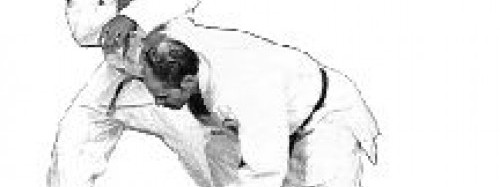
柔術「ソフト武道」の秘密
Ju-Jutsu is a kind of Japanese hand-to-hand fighting, the main principle of which is the following: not to go to direct confrontation but by yielding the attacks of the opponent direct his actions until the latter is at last entrapped.
Ju-յutsu is translated from Japanese as “soft techniques” (in Japanese “ju” means soft and “jutsu” means technique, tools). This naming should be perceived figuratively, as the attacks of jujutsu can be hardly called soft. Besides “ju-jutsu” formerly other names were also used, such as “taitsuju”, “kogusoku”, “toride”, “hakuda” and even “judo”.
There exist many kinds and forms of ju-justu, which are applied in different schools engaged in ju-jutsu. The schools of ju-jutsu use all the forms of struggle: hurling, retention, twisting, kicking and striking. In addition, in the past many schools taught to use weapons daggers, swords, spears. For a long time the main peculiarity of the ju-jutsu technique was hitting the most vulnerable parts of the body with head, fingers, hands and legs. Due to such skills, the athlete could bring the opponent to an unconscious state and could even kill.
There was known the technique of the so-called “delayed death”, when the hitting of a certain part of the opponent’s body brought him to death only after a certain period of time from several days up to several months.
Jiu-jitsu was developed among the samurais in the feudal Japan as a method of unarmed combat against the armed opponent. It was widely used in the army, and the trainers were the samurais themselves. It is remarkable that for a long period of time jiu-jitsu was developed only by the tribal schools that had samurai origin. Common people were forbidden to use this art.
Jiu-jitsu reached its highest peak in the era of Tokugawa (1603-1868), when after many wars the period of lasting peace was established in the country. During that time, the number of schools engaged in these martial arts was around 700 and it was during this period that the technique of using weapons gradually disappeared.
In Europe and America jiu-jitsu was introduced during the first half of the 20th century, when a number of Japanese trainers opened their schools there. It is also worth mentioning that ju-jutsu was widely spread in the West only during the 50ies. Though this sports yields in popularity karate, taekwondo and ushu, it has thousands of followers in many countries of the world. And Armenia is also among them.
In 1995 Ju-jutsu federation was established in Armenia. The president of the federation is Robert Tsaturyan. Since 1995, our sportsmen had a great success in the World Championship and Europe Championship getting honorary positions for many times.
Prepared by Lusine Petrosyan
http://ostarmenia.com/hy/latest-news-arm/jiu-jitsu-arm/#から取られた材料
translated from Armenian into English by M.Vardanyan












